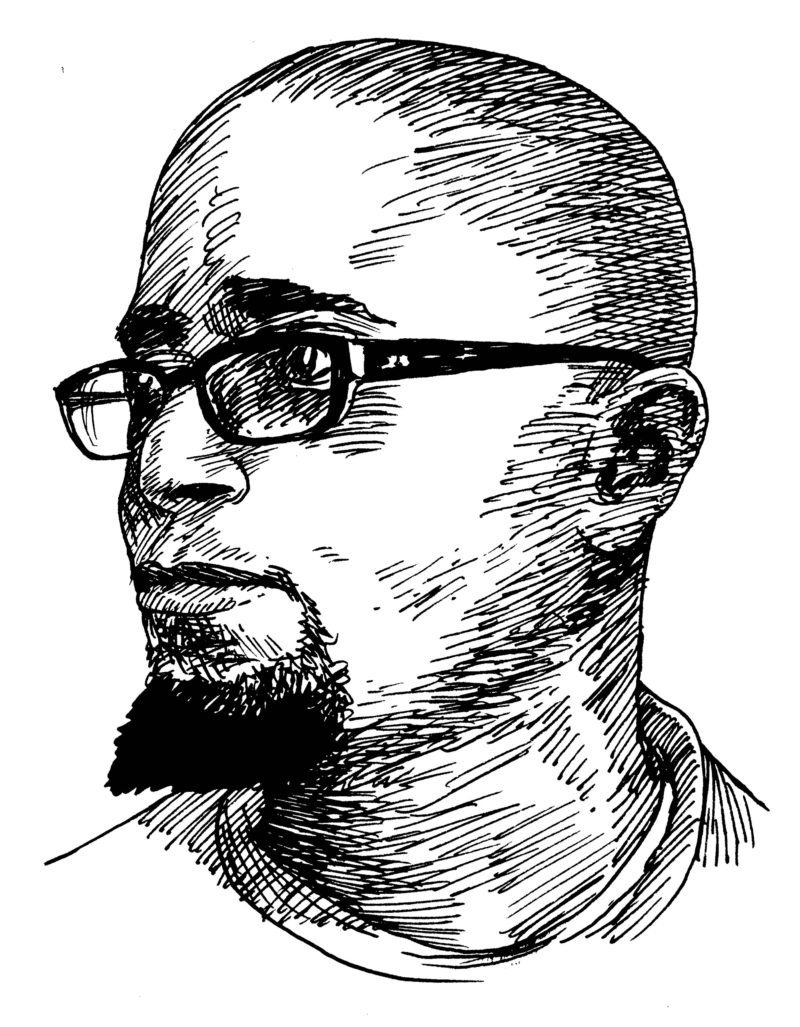If anyone were to ask me how I met Tyehimba Jess, I would blush and regretfully say I don’t remember. How I met Tyehimba is not as important as the fact that I did. My first memory of a real conversation with him was at a café in Dumbo, Brooklyn, where he had agreed to meet up with me, an unprofessed and unconfessed poet, to talk about poetry. By this time I had read leadbelly (2005), his first book, four times. I wanted to make a good impression; I, like many poets, was looking for a mentor. While Tyehimba did not become my mentor, so to speak, every single time I spoke to him, it happened to be in a moment when I needed a reminder, as a writer, to follow my intuition, do what I want to do, keep reading, and to do it for the writing and nothing else.
His latest poetry collection, Olio (2016), is a hybrid work in which the fictional protagonist, Julius Monroe Trotter, an injured World War I veteran, travels throughout the Reconstruction-era United States interviewing people to piece together a biography of the king of ragtime, Scott Joplin. In a precise mixture of experimental contrapuntal, sonnet, and prose poetry, the collective narrative of Olio reveals the history of world-renowned African American music acts in the late nineteenth century. In 2017, Tyehimba was awarded the Pulitzer Prize for Poetry and the Anisfield-Wolf Award for Olio. Both leadbelly and Olio are collections driven by persona poetry and research into African American musicology and politics.
I interviewed Tyehimba over the course of five years. We began over dinner at Junior’s in Brooklyn in 2014, when Olio was shaping up for publication. We followed up in an email interview in 2016, after Olio debuted, and concluded our years-long conversation in the spring of 2018. This is what I have found in my interactions with Tyehimba Jess: he shoots straight; he is aware; he is passionate; he rarely does not mean what he says; when it comes to the work of writing, he is matter-of-fact: you are either going to work or you’re out; he is determined to be more of himself every day; he listens. My second year at Cave Canem, the acclaimed workshop for Black poets founded by poets Toi Derricotte and Cornelius Eady, I left my copy of Olio at home. I bought another copy and took it to Tyehimba to sign. He wrote: “To Jessica! Here’s to the lovely journey! Thanks for traveling with me!”
—Jessica Lanay
...
You have reached your article limit
Sign up for a digital subscription and continue reading all new issues, plus our entire archives, for just $1.50/month.
Already a subscriber? Sign in





